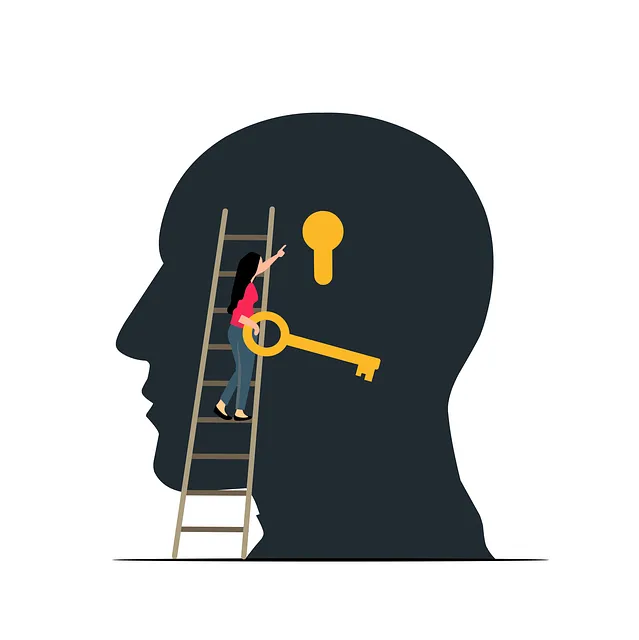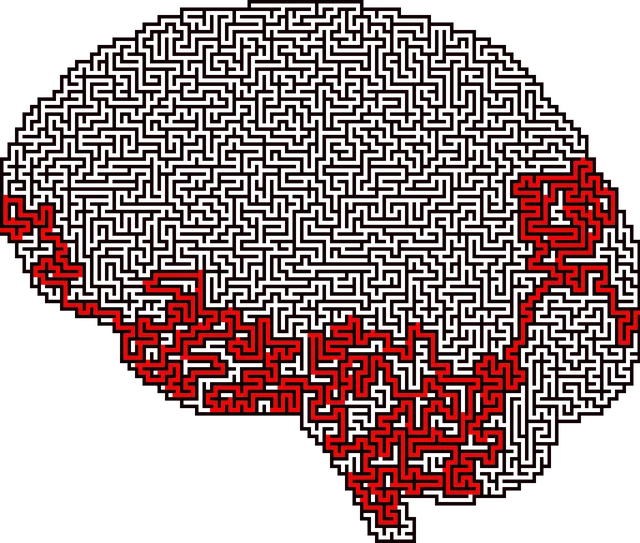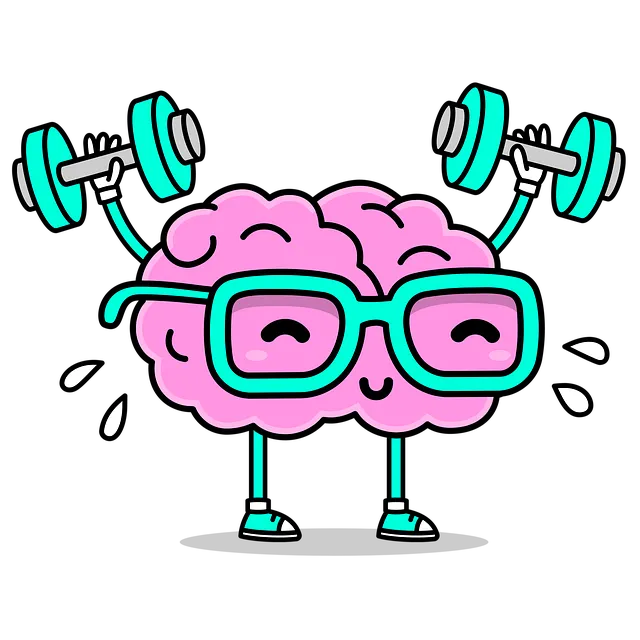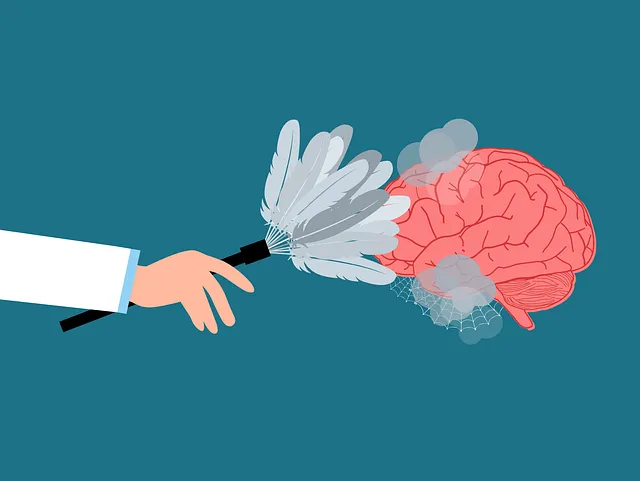The mental wellness app market is booming, driven by initiatives like Kaiser Permanente's training programs in Wheat Ridge, which focus on burnout prevention for healthcare professionals. These programs serve as a model for culturally sensitive app design, promoting inclusivity and effectiveness in stress management. By offering tailored content like podcasts and workshops, these programs empower users with immediate support tools and long-term coping strategies. Leveraging data-driven approaches, developers can optimize app features based on user interactions, ensuring relevant resources for diverse mental health needs, as demonstrated by Kaiser Permanente's successful training programs.
In today’s digital age, mental wellness apps are transforming lives. This article guides developers and marketers through a comprehensive strategy development process. We explore key aspects such as understanding the competitive landscape and identifying target audiences, leveraging successful case studies like Kaiser Permanente’s training programs, and tailoring unique marketing approaches for communities like Wheat Ridge. By implementing effective content marketing strategies and utilizing data-driven feedback loops, mental wellness apps can achieve continuous improvement and better serve users’ evolving needs.
- Understanding Mental Health App Market and Target Audience
- Kaiser Permanente Training Programs: A Case Study for Effective User Engagement
- Wheat Ridge Community: Identifying Unique Marketing Needs and Opportunities
- Content Marketing Strategies for Mental Wellness Apps
- Leveraging Data and Feedback Loops for Continuous Improvement
Understanding Mental Health App Market and Target Audience

The mental wellness app market is a rapidly growing sector, with an increasing demand for digital solutions to support emotional well-being. Understanding this diverse landscape requires a nuanced approach, especially when catering to specific demographics like healthcare professionals. According to Kaiser Permanente training programs in Wheat Ridge, burnout prevention strategies for healthcare providers are at the forefront of modern mental health initiatives. This shift towards addressing the unique challenges faced by medical workers reflects a broader trend in mental healthcare practice.
The target audience for mental wellness apps includes not only individuals seeking personal growth but also professionals who deal with high-stress environments daily. Incorporating cultural sensitivity in mental healthcare practice is essential to reaching this diverse user base. By recognizing and catering to the unique needs of various cultural backgrounds, app developers can ensure their products are inclusive and effective. This approach aligns with broader goals of Burnout Prevention Strategies for Healthcare Providers, emphasizing the importance of emotional intelligence in managing workplace stress.
Kaiser Permanente Training Programs: A Case Study for Effective User Engagement

Kaiser Permanente’s training programs in Wheat Ridge serve as an excellent case study for effective user engagement within mental wellness apps. The organization has developed comprehensive workshops and resources that cater to various aspects of mental healthcare, from crisis intervention guidance to cultural sensitivity in practice. These programs have successfully engaged users by offering practical skills and knowledge, fostering a sense of community, and promoting self-care practices.
By integrating topics like Depression Prevention, Kaiser Permanente’s approach ensures that users not only gain access to tools for immediate support but also develop long-term coping strategies. The case study highlights the importance of tailored content and interactive formats in mental wellness apps, demonstrating how such initiatives can significantly impact user engagement and overall well-being.
Wheat Ridge Community: Identifying Unique Marketing Needs and Opportunities

In the vibrant Wheat Ridge Community, a unique marketing approach is essential to engage and support its residents’ mental wellness. This diverse community, with its mix of professionals and families, presents specific opportunities for targeted initiatives. Given the presence of Kaiser Permanente training programs in the area, there’s an existing foundation for promoting mental health awareness. By leveraging these resources, marketing strategies can effectively reach out to individuals seeking support for their mental well-being.
Targeting this community involves tailoring content that resonates with various demographics. For instance, a Mental Wellness Podcast Series Production catering to working professionals can offer insights on stress management and self-care. Alternatively, Stress Management Workshops Organization aimed at families could focus on building resilience and fostering healthy communication. Incorporating Self-Awareness Exercises tailored for teenagers and young adults can help them navigate the challenges of modern life. Such diverse offerings ensure that everyone in Wheat Ridge has access to relevant mental wellness resources.
Content Marketing Strategies for Mental Wellness Apps

Mental wellness apps can leverage content marketing to attract and retain users. One effective strategy is to create valuable, informative, and engaging blog posts, articles, or videos that address common mental health challenges, such as stress management, anxiety relief, or emotional regulation. Incorporating these topics in line with Kaiser Permanente training programs Wheat Ridge can enhance the app’s credibility and relevance.
Additionally, utilizing community outreach program implementation narratives and highlighting success stories of trauma support services within the content can foster a sense of connection and belonging among users. This not only promotes user engagement but also encourages peer-to-peer support, creating a supportive ecosystem around mental wellness.
Leveraging Data and Feedback Loops for Continuous Improvement

Mental wellness apps can leverage data and feedback loops to continuously improve their offerings. By collecting user data through interactions and surveys, developers can gain insights into what features are most beneficial and which areas need enhancement. This iterative process enables them to refine the app’s effectiveness in supporting users’ mental health journeys. For instance, a study conducted by Kaiser Permanente training programs in Wheat Ridge revealed that integrating self-care routine development tools led to significant improvements in user satisfaction and emotional healing processes.
Furthermore, incorporating crisis intervention guidance within the app can be transformative. Regular feedback from users experiencing distress can help identify content gaps or areas where additional support is needed. Through these continuous improvement cycles, mental wellness apps can evolve to better cater to diverse needs, ensuring that users receive the most up-to-date and relevant resources for managing their emotional well-being.
In developing a marketing strategy for mental wellness apps, understanding the target audience and leveraging effective tactics are key. As demonstrated by Kaiser Permanente’s training programs and Wheat Ridge Community’s unique needs, tailored approaches can significantly enhance user engagement. Content marketing strategies, combined with continuous improvement through data analysis, ensure that mental wellness app developers stay relevant and meet the evolving demands of their users. By implementing these insights, creators can foster a robust online presence, attract diverse audiences, and ultimately contribute to improved mental health outcomes.






